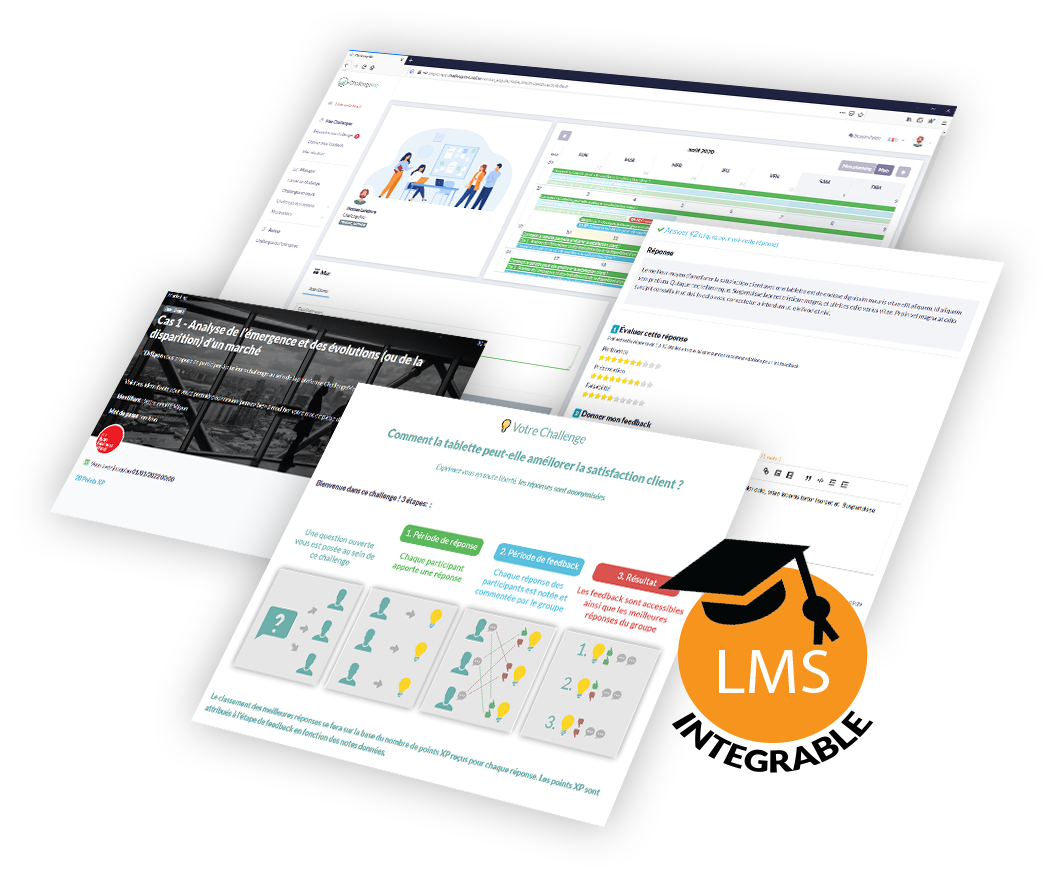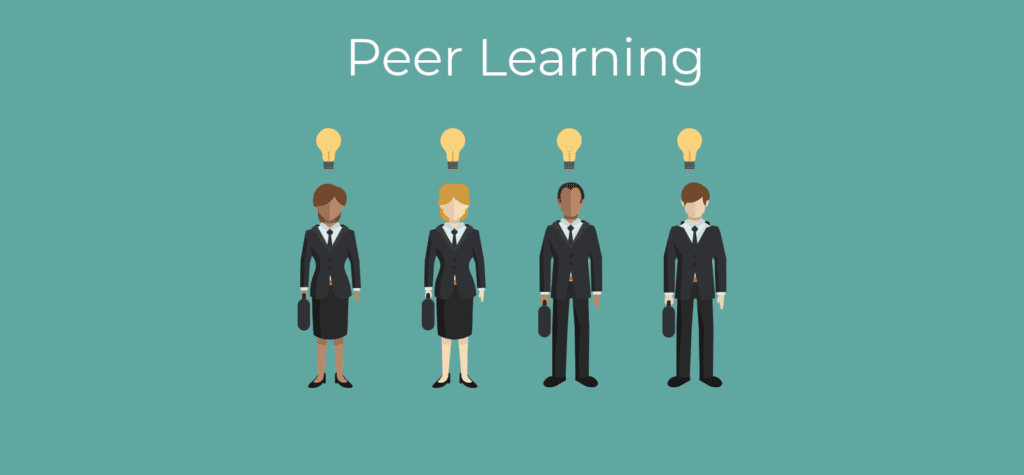Is Peer Learning a real solution to improve your knowledge acquisition?
Peer Learning is a learning technique that promotes collaboration and teamwork to gain knowledge. Indeed, it is the learners who, from a concept and different information, must answer a problem without the intervention of a teacher.
Each learner is both a recipient and donor of knowledge. All learners work together to find a solution to a given problem. Individual skills acquired before or during the teamwork are then shared amongst all teammates.
Also called “horizontal” learning, the trainer if there is one, does not teach something, however, he can help learners during the process if necessary.
What are the origins of Peer Learning?
Peer Learning comes straight from Harvard University, specifically from physicist and professor Eric Mazur. He decided to work on a new learning technique when he discovered that his students were able to successfully solve a problem, but failed in understanding a concept.
Eric Mazur started to develop this idea in 1991. Initially, the Peer Learning was only used to explain rather short concepts between the different modules. Peer learning has evolved over time and is now one of the most efficient learning methods.
One key point of Peer Learning is the ability to create effective conceptual questions that orient the learner perfectly. To achieve this, Eric Mazur recommends organizing questions around one concept at a time.
Eric Mazur finally released in 1997 a book entitled “Peer Instructions: A User’s Manual”. He is now recognized as a major pioneer of this technique.
Why choose Peer Learning?
The advantage of Peer Learning is that it allows learners to focus on understanding rather than solving. This develops a spirit of collaboration and cooperation among learners and makes them more effective.
When we follow a traditional learning with a trainer, we are a spectator, we wait for the trainer to bring us the knowledge and it leads to several negative effects:
- A lack of interactivity that prevents us from easily retaining a series of information.
- The content taught can be quite strict and inflexible, there is a real lack of innovation and creativity in solving the problem.
- We generally get a single point of view on the understanding of the problem / On the contrary, Peer Learning puts the learner in a dynamic that he would not otherwise have, he does not just wait to receive a knowledge, he transmits it. This promotes his ability to listen because he knows he will have to give it back to his peers, so he will be more focused on acquiring information.
While with Peer Learning:
- The fact of sharing his answer brings the learner into a deeper thinking, he wants to help his peers and therefore will try to give a response as elaborate as possible.
- By sharing his response with his teammates, the learner will see various ways to solve a problem, and will be able to bounce more easily if he were to face this case.
- Feedback from teammates is one of the biggest benefits of Peer Learning, as feedback is truly personalized and tailored to the team’s work environment – the answer really adapts to everyone’s needs.
- It is a technique that places the learner in a confident state of mind. Knowing that he is trained by someone who shares his work and knows the ins and outs, he will be able to adapt more easily to his environment. It will be easier for him to share his experience because it will fit perfectly with the team.
- This learning mode can lead learners to practice reverse coaching if the team has different age groups in the company.
Using Peer Learning with ChallengeMe:
ChallengeMe uses Peer Learning as a learning vector for your teams to grow and understand a concept, with a customizable, easy-to-access, and anonymous platform.
Challenges go through several stages. Learners are given some content and asked an open-ended question. They have a certain amount of time to answer.
Then comes the second stage where answers of all participants are revealed. Learners will read different ways of thinking, different approaches, and learn new elements. They will rate each answer, and leave a comment to give their opinion on all proposed solutions.
To summarize, ChallengeMe brings a documentation, a theme, a concept, on which your team works together in order to obtain new knowledge, but above all, to boost motivation and collaboration between peers.
In conclusion:
Peer Learning is an advanced learning method that really deserves to be tested, it allows for better memorization, increased collaboration and knowledge sharing focused on your team’s work environment. Many large groups use Peer Learning, and more and more companies are trying and renewing the experience.

Lancez facilement des évaluations par les pairs grâce à notre plateforme ChallengeMe


